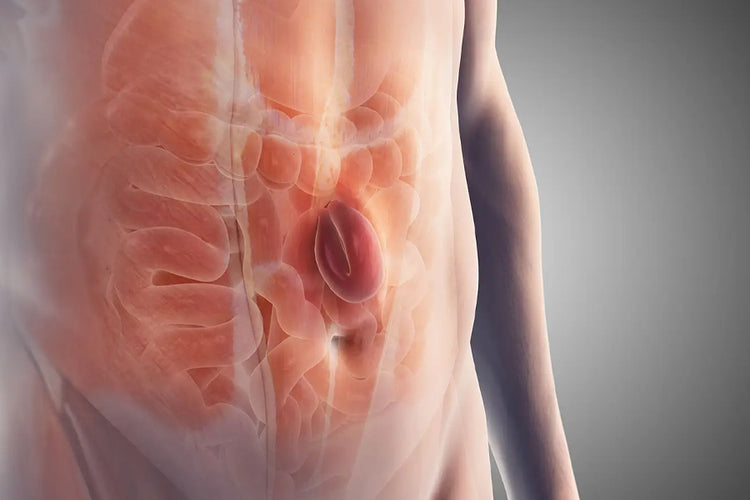In an age where the hustle of life often pushes health to the back burner, the focus on men's health has never been more critical. In our article, "Men's Health Matters: Raising Awareness and Promoting a Healthy Lifestyle," we shine a spotlight on this important topic. We delve into the multifaceted issues surrounding men's health and the necessity of maintaining a balanced lifestyle in the face of challenges.
This journey is not just about awareness but also about empowering men to unleash their full potential and prioritise their well-being. Join us as we explore and advocate for healthier habits, preventive care, and have an open conversation about men's health issues. It's time to put men's health front and centre.
When thinking about our health, an all too familiar example includes a busy schedule, a diet that mainly consists of burgers, pizzas, and the occasional protein shake and a forgotten gym membership collecting dust in a drawer somewhere.
Oh, and let's not forget the sedentary lifestyle that involves binge-watching action movies while munching on popcorn.
But fear not, for the Men's Health Matters team is here to save the day! Armed with knowledge, this article will embark on a mission to enlighten our brave heroes about the importance of caring for their bodies.
Through a series of informative events, the campaign sheds light on the staggering statistics - the silent dangers that lurk in the shadows; heart disease, prostate cancer, mental health issues, and more.
So buckle up, gentlemen! It's time to put aside the remote and embrace a healthier lifestyle. Prepare to sweat it out at the gym, munch on some greens, and bid farewell to those late-night fast-food runs. The Men's Health Matters campaign reminds you that taking care of yourself is the best thing you can do.
Men's Health Awareness Month
June marks the start of Men's Health Month, dedicated to emphasizing the well-being and vitality of men worldwide. It provides an opportunity to foster understanding and knowledge regarding urology-related ailments commonly impacting men, including prostate cancer and erectile dysfunction.
The actual symbol for the month is a blue ribbon, and the goal of Men's Health Month is to increase awareness of preventable health issues and encourage early detection and ailment of diseases, including cancer, heart disease, and depression.
Throughout June, we encourage men to actively engage in healthy lifestyles by participating in physical activities, undergoing screenings, or adopting nutritious eating habits.
"Taking care of your body is not just about looking good; it's about nurturing and honoring the vessel that carries you through life." ~Paulo Coelho
By promoting education, early detection, and regular check-ups, we emphasize the significance of proactive measures in preserving men's lives and tackling their health challenges.
Throughout this month, numerous events and activities remind us of the significance of men's health. Acknowledging men's health issues through special gatherings like health fairs, screenings, and various events has become a tradition.
Men's Health Month also provides an opportunity to honor those who have triumphed over health challenges and remember those who have lost their lives to preventable illnesses. We pay tribute to the families impacted by losing loved ones due to health conditions.
What Are Some Health Issues That Affect Men?
It's crucial to recognize that men face unique challenges and specific health issues that deserve attention. Understanding men's health issues can help promote awareness, early detection, and proactive management from physical conditions to mental health concerns.
Prostate Cancer

Prostate cancer is a prevalent health issue among men. The prostate gland, positioned below the bladder and in front of the rectum, plays a role in sperm transportation. Prostate cancer symptoms include urination difficulties, blood in semen, erectile dysfunction, and discomfort in the pelvic area.
It's important to note that while certain forms of prostate cancer progress slowly and may require minimal or no treatment, other aggressive types can rapidly spread.
Given the typically asymptomatic nature of prostate cancer, screening becomes crucial as it enables early detection, offering the best chances of successful treatment and cure. Regular screening can safeguard men's health and address prostate cancer at its earliest stages.
Testicular Cancer
Testicular cancer is a relatively uncommon but significant health issue affecting men. The testicles, responsible for producing male sex hormones and sperm, can be affected by cancerous growths.
Surprisingly, testicular cancer is the most prevalent cancer among males in the United States between the ages of 15 and 35, though it can occur at any age.
Symptoms of testicular cancer include swelling, lumps, or enlargement in either the testicle or groin area, a feeling of heaviness in the scrotum, and the enlargement or tenderness of the breasts.
Men must consult their healthcare provider if they observe any abnormalities in their testicles. A medical professional can determine whether further screening, such as an ultrasound or blood test, is necessary to evaluate any lumps or concerns.
Early detection and prompt medical intervention play a vital role in successfully treating testicular cancer, making it imperative to seek medical attention for timely diagnosis and appropriate treatment.
Related Article: Low Testosterone: 6 Signs of Low Testosterone in Men
Hernia

A hernia happens when an organ protrudes through an opening in the muscle or tissue that usually holds it in place. While both men and women can experience hernias, certain types, such as inguinal hernias in the groin, are more common in men.
Several risk factors add to the development of a hernia, including obesity, a family history of hernias, chronic coughing, and smoking. While hernias are generally not immediately life-threatening, they can cause discomfort and do not resolve on their own without treatment.
Hernia surgeries can be performed through open, laparoscopic, or robotic approaches. The choice of technique depends on factors such as the size and location of the hernia, as well as the patient's medical and surgical history.
Related Article: Diastasis Recti Exercises for Men: 7 Best Exercises to Cure It
Heart Disease
Heart disease, while not exclusively a men's health issue, is the primary cause of death for men in the United States. Certain risk factors for heart disease, such as age, gender, and family history, cannot be controlled. Moreover, men develop heart disease approximately 10 years earlier than women.
Symptoms of a heart attack can vary between males and females. Men commonly experience chest pain, often described as squeezing or pressure.
On the other hand, women may exhibit more subtle symptoms, such as pain in the neck, jaw, or shoulder, unrelated to the chest. Abdominal discomfort, shortness of breath, and feelings of nausea or vomiting may also be present.
You should add DMoose Omega 3 Fish Oil Supplements to your diet, a highly effective supplement offering numerous benefits for heart and overall body functioning. The high concentration of omega-3s in DMoose Omega 3 Fish Oil ensures maximum absorption and utilization by the body, enhancing its effectiveness.
By incorporating this supplement into your daily routine, you can experience improved heart health, enhanced brain function, and overall vitality.
Create Healthy Habits to Stay Healthy

Shining a Spotlight on men's health is a crucial reminder to improve their overall well-being proactively. Here are some valuable tips to assist men in creating healthy habits and becoming positive role models for those around them.
Regular Checkups
It is crucial to understand that prioritizing your health by scheduling an annual physical examination and undergoing a biometric screening contributes to your overall well-being. Regularly attending check-ups allows healthcare professionals to evaluate your current health status, identify potential risk factors, and detect any underlying health conditions at an early stage.
Annual physicals are a valuable opportunity to discuss health concerns, review your medical history, and receive personalized recommendations for maintaining or improving your well-being.
It is equally important to obtain knowledge about your family's health history. Understanding your family's genetic predispositions and potential hereditary conditions can provide valuable insights into your health risks.
Eating Healthy

A well-balanced and nutritious diet is essential for maintaining optimal health and well-being. Among the critical elements of a healthy eating plan, incorporating a diverse range of fruits and vegetables is paramount.
These rich and nutrient-packed foods offer essential vitamins, minerals, and antioxidants that support various bodily functions and contribute to overall vitality.
The consumption of fruits and vegetables brings about numerous health benefits. They help to bolster the immune system, lower the risk of chronic diseases like heart disease and certain types of cancer, improve digestion, and promote healthier skin.
You should incorporate DMoose Probiotics 50 Billion CFU in your routine to support gut health and overall well-being.
By populating the intestines with good bacteria, DMoose Probiotics 50 Billion CFU promotes a healthy gut microbiome, crucial for optimal digestion, immune function, and mental well-being.
Regularly consuming the Probiotics supplement by DMoose can help alleviate digestive issues such as bloating, gas, and constipation while reducing the risk of infections and supporting a healthy immune response.
Related Article: 7-Day Healthy Budget Meal Plan for Men & Women
Regular Exercising
Adults should aim for at least two and a half hours of physical activity each week. Engaging in regular exercise is essential for maintaining overall health and well-being.
Physical activity offers numerous benefits, including improved cardiovascular health, enhanced muscle strength and endurance, increased flexibility, and better mental well-being.
To meet the recommended guidelines, it is essential to find activities that you enjoy, and that fit into your lifestyle. This can include a variety of exercises such as brisk walking, jogging, cycling, swimming, dancing, or participating in sports. Breaking down the recommended duration into smaller weekly sessions makes it more manageable and feasible.
Related Article: Exercises for Men Over 40: Best 10 Exercises to Get You Fit, Strong, and Healthy!
No Smoking
Smoking poses significant health risks, and quitting this habit benefits your immediate and long-term well-being.
Upon quitting smoking, your body immediately begins to repair itself. Within hours, your heart rate and blood pressure start to decrease, improving circulation and reducing the strain on your cardiovascular system. In the days and weeks that come, your lung function improves, leading to easier breathing and increased oxygen supply to your body.
Reduce Stress

When it comes to reducing and relieving stress, practicing self-care is crucial. Taking time for yourself and engaging in activities that promote relaxation and well-being can significantly impact your stress levels. Finding support from others, avoiding alcohol and drugs as coping mechanisms, staying socially connected, and maintaining an active lifestyle are among the most recommended self-care options.
Seeking support from trusted friends, family, or professional counselors can provide valuable outlets for sharing your feelings and concerns. They can offer guidance, perspective, and emotional support, helping to alleviate stress and promote a sense of belonging and understanding.
Try incorporating DMoose Multi-Vitamin for essential nutrients that can help improve your health and well-being. Formulated with adaptogens like Ashwagandha, DMoose multivitamins can help your body adapt to stress and promote a sense of calm and relaxation.
By taking DMoose Multi-Vitamin regularly, you can nourish your body with vital nutrients while managing stress levels. This supplement is highly effective for individuals looking to combat the adverse effects of stress in their daily lives.
Seek Help for Depression
Depression tends to be underdiagnosed in men, and statistics reveal that men are four times more probable to die by suicide compared to women. It is crucial to break the stigma surrounding mental health and encourage men to seek help when experiencing symptoms of depression or other mental health issues.
Depression can manifest differently in men, often presenting as anger, irritability, or withdrawal rather than the more commonly recognized symptoms such as sadness or crying. This variation in symptom expression may contribute to underdiagnosis and reluctance to seek support.
Related Article: 10 Most Important Supplements for Men Who Lift, According to Dietitians
Know the Causes and Symptoms of Heart Attack
Shockingly, every 40 seconds, someone in the United States experiences a heart attack, making heart disease the leading cause of death among males. Recognizing the signs and symptoms of a heart attack can be instrumental in seeking timely medical attention and potentially saving lives.
Key signs of a heart attack encompass various discomforts and sensations. These include pain or discomfort in the jaw, neck, or back, which can often be overlooked or mistaken for other conditions. Feeling weak, light-headed, or experiencing faintness may also indicate a heart attack and should not be disregarded.
Chest pain or discomfort, a hallmark symptom, should be taken seriously and evaluated promptly.
Moreover, pain or discomfort in the arms or shoulders, particularly the left arm, can be a potential sign of a heart attack. Lastly, shortness of breath, whether mild or severe, may accompany other symptoms and should never be ignored.
Encourage Self-Care Among the Men in Your Workplace!

As a responsible employer, it is crucial to regularly remind and inform all employees, including the male workforce, about the resources and support available to empower them in prioritizing their health.
We strongly encourage you to promote existing programs designed to enhance employee well-being or contact us for assistance in establishing new initiatives tailored to your workplace.
We are dedicated to assisting you in creating a health-conscious environment that fosters employee engagement and encourages proactive health management.
Volunteer
Volunteering benefits the causes and communities we serve and profoundly impacts our overall health and well-being. Research states that 75% of U.S. adults reported feeling physically healthier due to volunteering.
However, the advantages extend far beyond the physical realm, as 93% reported an improved mood, 79% experienced lower stress levels, and 88% reported increased self-esteem.
The remarkable opportunity to support and encourage your passions through volunteerism is amazing. By finding opportunities to engage in meaningful volunteer work, you demonstrate your unwavering commitment to well-being and help to create a tangible social impact.
Conclusion
Promoting and prioritizing men's health is of utmost importance. We can significantly impact men's overall health and quality of life by raising awareness about common health issues, encouraging regular check-ups, advocating for healthy habits, and supporting mental well-being.
Men's Health Month serves as a reminder to take proactive steps towards a healthier lifestyle by eating healthy, quitting smoking, reducing stress, seeking help for depression, exercising, and ensuring men have the resources and knowledge to make informed decisions about their well-being.
Investing in men's health contributes to healthier individuals, stronger families, and thriving communities. Let us support and empower men in their journey toward optimal health and wellness.
Reading List
Article Sources
- Tsirigotis, Konstantinos, et al. "Gender Differentiation in Methods of Suicide Attempts." Medical Science Monitor: International Medical Journal of Experimental and Clinical Research, vol. 17, no. 8, Aug. 2011, pp. PH65-70. PubMed Central, https://doi.org/10.12659/MSM.881887.
- Yeung, Jerf W. K., et al. "Volunteering and Health Benefits in General Adults: Cumulative Effects and Forms." BMC Public Health, vol. 18, July 2017, p. 8. PubMed Central, https://doi.org/10.1186/s12889-017-4561-8.











